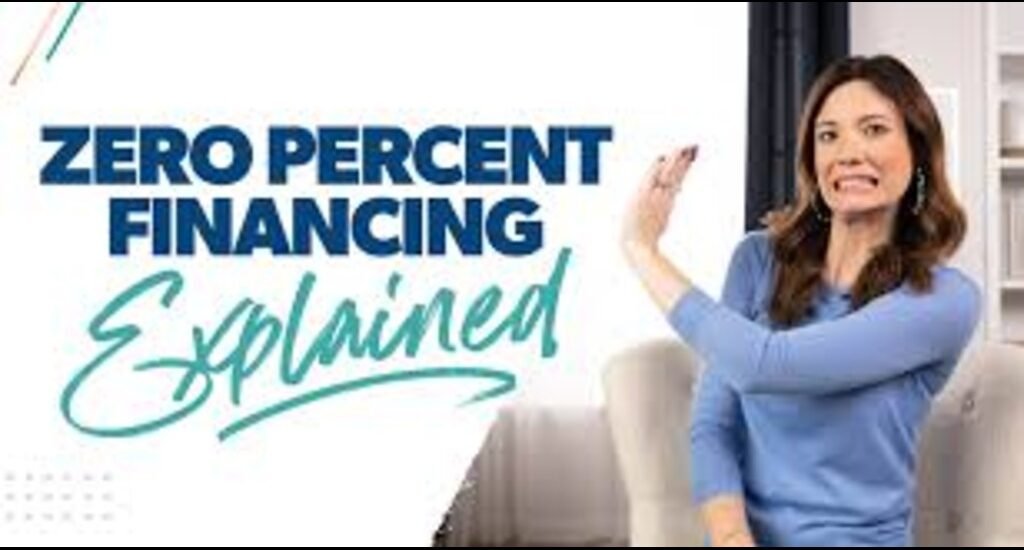Zero-Interest Finance Plans
Zero-Interest Finance Plans: Zero-interest finance plans have become one of the most attractive payment options in today’s retail and finance world. Whether you’re buying a new smartphone, upgrading your home furniture, or even purchasing a car, the offer of “0% APR” sounds like a dream come true — pay for your purchase in small monthly installments without paying any extra money in interest.
However, just like most things in the financial world, there’s more to the story than meets the eye. While these plans can genuinely help consumers manage their expenses better, they can also be a silent trap if not handled carefully.
In this comprehensive guide, we’ll cover how zero-interest finance plans work, why businesses offer them, their advantages, hidden risks, real-life examples, and expert tips to make sure you know exactly what you’re signing up for.
What Exactly is a Zero-Interest Finance Plan?
A zero-interest finance plan is a payment arrangement between a consumer and a retailer or lender that allows you to spread the cost of a purchase over a fixed period without paying any interest — as long as you follow the agreed repayment schedule.
Example:
- You buy a laptop worth $1,200.
- The store offers a 12-month 0% APR plan.
- You pay $100 per month for 12 months.
- If all payments are made on time, you only pay $1,200 total — no extra fees.
It’s essentially like getting an interest-free loan from the seller or their partner finance company.
Why Businesses Offer Zero-Interest Plans
On the surface, it may seem strange that businesses “lend” you money for free. But in reality, these plans are a strategic marketing and sales tool that benefit both the seller and the finance provider.
Here’s why businesses love them:
- Encourage Higher Spending
Customers are more likely to buy premium products or add extra items to their cart if they can spread the cost. - Boost Sales Conversion
If a customer is on the fence about a purchase, a zero-interest plan can remove the price barrier and push them to buy immediately. - Long-Term Customer Relationships
Once you start a finance plan with a store, you’re more likely to return for future purchases. - Partnership Profits
Many retailers work with finance companies or banks. These lenders earn money from fees, penalties, and commissions.
The Clear Benefits of Zero-Interest Finance Plans
When used wisely, zero-interest finance plans can be a powerful money management tool.
Makes Expensive Items Affordable
Instead of paying a large sum upfront, you can break it down into smaller, more manageable monthly payments.
No Extra Cost (If Managed Properly)
Unlike credit cards that charge high interest rates, a true zero-interest plan means you only pay the purchase price — nothing more.
Preserves Your Cash Flow
You can keep your savings intact and use them for emergencies while still making necessary purchases.
Builds Credit Score (When Paid on Time)
If the plan is reported to credit bureaus, on-time payments can improve your credit history.
The Hidden Dangers of Zero-Interest Finance Plans
Unfortunately, these plans are not always as risk-free as they seem. Many consumers fall into traps that end up costing them much more.
Deferred Interest Clauses
Some “zero-interest” offers are actually deferred interest deals. If you fail to pay off the balance in full by the end of the term — even by one day — you may be charged interest from the original purchase date, often at rates as high as 25–30%.
Encourages Overspending
When payments look small, it’s easy to buy more than you can afford. This can lead to multiple overlapping finance plans and increased debt risk.
Late Payment Penalties
Missing a single payment can:
- Cancel your zero-interest benefit
- Add high penalty interest rates
- Damage your credit score
Impact on Credit Utilization
Even if you make payments on time, carrying multiple active finance accounts can affect your credit profile.
How to Use Zero-Interest Finance Plans Safely
If you decide to take advantage of a zero-interest offer, follow these business-level strategies to protect yourself:
- Read the Fine Print
- Look for words like “deferred interest” or “promotional APR.”
- Understand exactly what happens if you miss a payment.
- Set Up Automatic Payments
- Avoid late fees by automating your monthly installment.
- Don’t Finance Unnecessary Purchases
- Only use zero-interest plans for essential or high-value items you genuinely need.
- Limit the Number of Plans
- Too many plans at once can be overwhelming and risky.
- Pay Off Early if Possible
- Paying ahead of schedule can reduce risk and improve your financial stability.
Real-Life Case Studies
Case 1: The Smart Shopper
Sara buys a $2,400 appliance package with a 24-month 0% plan. She sets auto-pay for $100 per month and never misses a payment. Result? She pays exactly $2,400 with zero extra cost.
Case 2: The Costly Mistake
Ali buys a $1,000 TV with a 12-month deferred interest plan. He misses the final payment deadline by 5 days. Result? A $240 interest charge is added from the original purchase date, making his TV cost $1,240.
Final Verdict — Are They Worth It?
Zero-interest finance plans can be worth it if you are:
- Highly disciplined with money
- Good at meeting deadlines
- Aware of the fine print and potential penalties
However, for people who often miss payments, forget due dates, or tend to overspend, these plans can quickly turn into a costly debt trap.
Key Takeaways
- Worth It for Responsible Buyers — Only if you pay on time.
- Risky for Poor Budgeters — Missed payments can lead to high interest.
- Always Read Terms — Understand exactly what you’re agreeing to.
- Treat Like a Short-Term Loan — Not “free money.”



